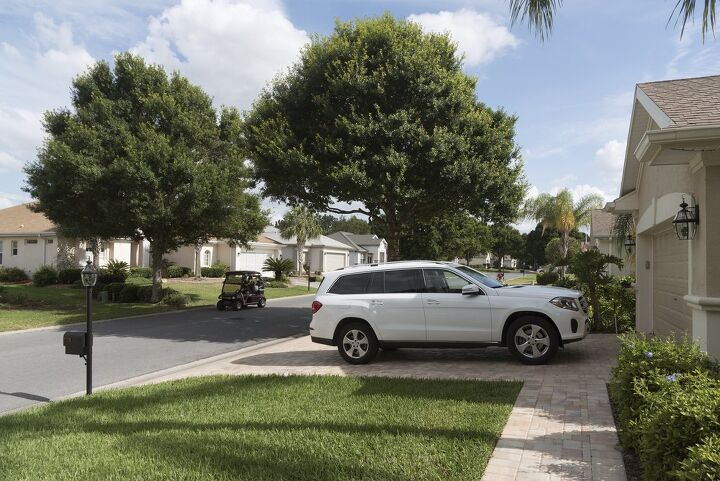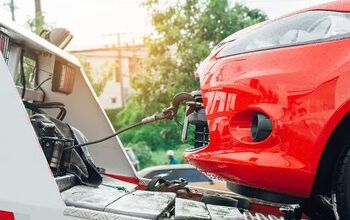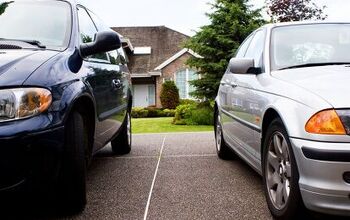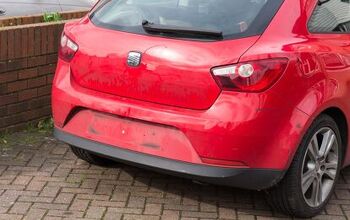What To Do If Someone Parks In Your Driveway (Do This!)

Finding an unknown vehicle in your driveway is frustrating. Driveway rights are the most common issues reported in neighborhoods. You may feel disrespected, or you may just want the vehicle moved so you can go about your day. What should you do if someone parks in your driveway?
Contact law enforcement. There are, though, certain situations in which a person can park in your driveway. Someone who is being pulled over by law enforcement may need to use your driveway. Other situations include allowing emergency vehicles to pass, and avoiding collisions and accidents. There are also certain types of vehicles that can temporarily park in your driveway.
Understanding traffic laws and matters of public safety helps you know what to do if someone parks in your driveway.
Do You Need a Brick and Stone Floor Contractor?
Get free, zero-commitment quotes from pro contractors near you.

Your Driveway May Not Be Private Property
The entire length of your driveway may not be on your property. In most cities and counties, there is a section of land that is known as an easement. Having an easement means that the land is owned by another person or entity, such as the city or county. You are granted rights to use the land to access your property via the entrance to your driveway.
Before you decide what to do if someone parks in your driveway, you need to know if the vehicle is on private or public property.
Types of Easements
There are five basic types of easements.
- Prescriptive Easements: Land that is openly and continuously used by someone other than the property owner
- Utility Easements: Utility companies have access to certain areas of your property for the purpose of installing and maintaining electric, gas, and other utilities
- Private Easements: Land that is owned by an entity or individual
- Easements by Necessity: Land that is used by someone other than the owner for legitimate purposes when it is absolutely necessary
- Right of Way Easement: A roadway or pathway on the owner’s property that allows another person to access their own property
When It’s OK for Someone to Park in Your Driveway
In addition to easements, traffic laws also allow for someone to park in your driveway under certain circumstances. Someone can park in your driveway when they are required to pull over for law enforcement. If an emergency vehicle is trying to pass through traffic, someone may park in your driveway temporarily to make room on the road. A person may also park in your driveway if it is necessary to avoid accidents and collisions.
Who Can Park in Your Driveway Without Permission?
There are certain types of vehicles that can park in your driveway legally, but only on a temporary basis.
Utility Vehicles
Utility vehicles can park in your driveway when there is work being done in a utility easement or on public land. This does not mean that a neighbor who works for a utility company can use your driveway at night or on the weekends. It must be on a temporary basis and only to perform work to install or maintain utilities.
Law Enforcement
Law enforcement officials can park in your driveway when it is necessary for public safety. As with utility vehicles, this is only on a temporary basis. Police officers can use your driveway while they perform official duties. Depending on the situation, a law enforcement officer may use your driveway for a few minutes, hours, or longer.
Emergency Vehicles
Emergency vehicles can park in your driveway to attend to someone who needs help. This may be someone in your home, a neighbor, or a vehicle accident victim. Tow trucks that are assisting with accidents can also park in your driveway on a temporary basis.
What to Do If Someone Parks in Your Driveway
If someone is illegally parked in your driveway, the best approach is to call the non-emergency number for the police. Do not try to handle the situation on your own. Even a friendly neighbor can be difficult in these situations.
If you live in a private community, contact the homeowner’s association (HOA) after you speak with the police. The HOA may have rules about parking in someone else’s driveway. They may be able to work with the individual who is parked in your driveway to find a resolution.
What If You Need to Park in Someone Else’s Driveway?
Courtesy and consideration go a long way with your neighbors. If you need to temporarily park in someone else’s driveway, ask permission. Let the person know when and for how long you need to use the driveway. Stick to the agreement. Your neighbor will appreciate the respect that you show.
Related Questions
Can you park in front of someone’s house?
You can park in front of someone’s house as long as there are no traffic signs to the contrary. Make sure that you don’t block the person’s driveway or mailbox.
Do You Need a Brick and Stone Floor Contractor?
Get free, zero-commitment quotes from pro contractors near you.

What Did We Learn?
Your driveway may only be partially on private property. Easements are pieces of land that are owned by individuals and entities, but used by other people. The entry of your driveway may be on city or county property. Knowing if the land is private or public property helps you know what to do if someone parks in your driveway.
A person can legally park in your driveway in certain situations. A person can park in your driveway to pull over for law enforcement. It is also legal to park in another person’s driveway to avoid a collision and make room emergency vehicles.
Utility trucks, law enforcement, and emergency vehicles can park in your driveway on a temporary basis. This is only legal when the individual is performing official duties. A neighbor who works for the utility company or police cannot park in your driveway during off-duty hours.
If someone parks in your driveway, the best option is to call the non-emergency phone number for local law enforcement. Also, contact the homeowner’s association (HOA) if you live in a private community. Let the HOA decide if any rules have been broken and how to handle the violation.
Related Guide

Jennifer L. Eggerton loves being hands-on, whether it's with a home DIY project, making repairs, re-decorating a room, or keeping life organized. She enjoys helping people by sharing her knowledge, insights, and experiences, as well as her lessons learned. In addition to her work as a writer, Jennifer is a Jeep® overlander, self-published author, and nature photographer who loves being outdoors.
More by Jennifer Eggerton






















![How To Reset A Whirlpool Cabrio Washer [In 5 Easy Steps!]](https://cdn-fastly.upgradedhome.com/media/2023/07/31/9076531/how-to-reset-a-whirlpool-cabrio-washer-in-5-easy-steps.jpg?size=350x220)

![10 Most Dangerous Neighborhoods in Baltimore [Updated]](https://cdn-fastly.upgradedhome.com/media/2023/07/31/9075655/10-most-dangerous-neighborhoods-in-baltimore-updated.jpg?size=350x220)


